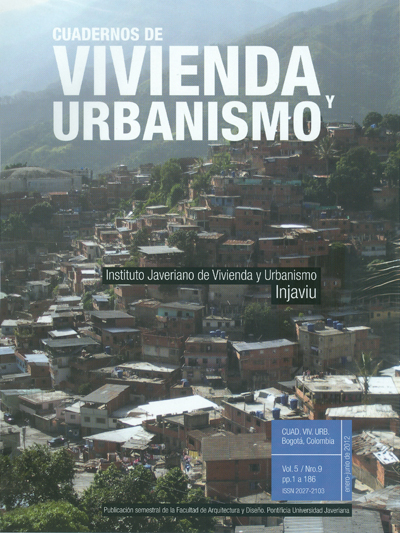Resumen
Herederos que somos del legado aristotélico, es ratificada la supremacía del hombre con la naturaleza, en diferentes escalas. La ciudad es una evidencia de esa ecuación histórica de la praxis social. Este artículo contempla la relación naturaleza-sociedad en la ciudad latinoamericana, tomando a Medellín, Colombia, como contexto geográfico. En la sociedad capitalista, la ciudad es el lugar de (re)producción del capital, que modifica sus condiciones naturales y transforma sus elementos naturales en facilitadores de esa producción. Medellín también ha pasado por diversos cambios económicos, sociales y naturales desde el inicio del siglo XX. Con base en los registros iconográficos y en información de la Alcaldía, se muestra la relación dominación-naturaleza, que responde a intereses del capital, expansión de los mercados y de grandes intervenciones, con impactos en los recursos hídricos y demás elementos abióticos y bióticos con interés en la ocupación en áreas de elevada pendiente.
Esta revista científica se encuentra registrada bajo la licencia Creative Commons Reconocimiento 4.0 Internacional. Por lo tanto, esta obra se puede reproducir, distribuir y comunicar públicamente en formato digital, siempre que se reconozca el nombre de los autores y a la Pontificia Universidad Javeriana. Se permite citar, adaptar, transformar, autoarchivar, republicar y crear a partir del material, para cualquier finalidad (incluso comercial), siempre que se reconozca adecuadamente la autoría, se proporcione un enlace a la obra original y se indique si se han realizado cambios. La Pontificia Universidad Javeriana no retiene los derechos sobre las obras publicadas y los contenidos son responsabilidad exclusiva de los autores, quienes conservan sus derechos morales, intelectuales, de privacidad y publicidad.
El aval sobre la intervención de la obra (revisión, corrección de estilo, traducción, diagramación) y su posterior divulgación se otorga mediante una licencia de uso y no a través de una cesión de derechos, lo que representa que la revista y la Pontificia Universidad Javeriana se eximen de cualquier responsabilidad que se pueda derivar de una mala práctica ética por parte de los autores. En consecuencia de la protección brindada por la licencia de uso, la revista no se encuentra en la obligación de publicar retractaciones o modificar la información ya publicada, a no ser que la errata surja del proceso de gestión editorial. La publicación de contenidos en esta revista no representa regalías para los contribuyentes.


